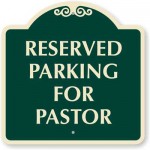Scripture… As We Live It #258
This is the 258th passage in “Scripture… As We Live It.”
And when this letter has been read among you – and your pastor has explained what it means and how to apply it – have it also read in the church of the Laodiceans; and see that you also read but don’t worry about the letter from Laodicea because it’s not inspired Scripture like this letter. (Colossians 4:16 re-mix)
(Please read the first post for an explanation of this series.)
Replay: The “trajectory” of encouragement in Hebrews
Four years ago, I was working on an academic paper on the Book of Hebrews. I ended up presenting that paper in a regional theological conference. I also published pieces of the paper on my blog. One of those posts was called “Encouragement as trajectory in Hebrews.” The terms related to “encouragement” is very important in the book of Hebrews. In fact, the author calls his letter a “word of encouragement.” In the book, “encouragement” has both positive and negative “trajectories”…
———————————-
Encouragement as trajectory in Hebrews
In my study of “The theology of encouragement in Hebrews”, I’ve found it helpful to think of encouragement as trajectory. (For more information on this study, see my posts “Theology of Encouragement in Hebrews“, “Peterson on encouragement in Hebrews“, “Mutuality“, and “A reminder of our priesthood from Hebrews“.) When I speak of a “trajectory”, I am referring to the path followed by a moving object.
In the case of encouragement, the author of Hebrews exhorts his readers along a path. This path includes both a negative trajectory (away from something) and a positive trajectory (toward something). Both parts of this trajectory are important to the author.
The Negative Trajectory of Encouragement
In the book of Hebrews, the author often exhorts his readers to move away from some attitudes and activities. For example, he uses the language of “encouragement/exhortation” in chapter 3:
But exhort one another every day, as long as it is called “today,” that none of you may be hardened by the deceitfulness of sin. (Hebrews 3:13 ESV)
In this case, the readers are pointed on a trajectory that takes them away from the deceitfulness which is caused by or composed of sin.
Similarly, in other passages, the author warns his readers to move away from neglecting their salvation (2:2-4), apostasy (6:4-6), forsaking to meet together (10:25), bitterness, sexual immorality, unholiness (12:15-16), failing to show hospitality, and loving money (13:1-6).
The Positive Trajectory of Encouragement
However, the author does not want his readers to simply move away from something (negative trajectory), he wants them to move toward something at the same time. Notice, for example, following the negative trajectory of 3:13 (see above), he gives his readers a positive trajectory in the next sentence:
For we share in Christ, if indeed we hold our original confidence firm to the end. (Hebrews 3:14 ESV)
Even in these two sentences, it is clear that the author does not want his readers to simply move away from the deceitfulness of sin (negative trajectory), he also wants them to move toward firm confidence (positive trajectory).
He gives several examples of positive trajectories throughout the letter: entering rest (4:3), holding fast (4:14; 10:23), drawing near (4:16; 7:19; 10:22), going on to maturity (6:1), love and good works (10:24; 13:1), enduring (12:1), remembering others (10:24; 13:3, 7), and being content (13:5-6).
The author continuously uses examples of both negative trajectories and positive trajectories. He tells his readers to learn from these, and to follow the positive examples. I’ll examine some of those examples of encouragement later.
———————————-
I’ll add this question to my older post: How can we include both “negative” and “positive” trajectories when encouraging others in Jesus Christ?
You are now the pastor
I really appreciate a recent post by Roger at “SimpleChurch Journal” called “Appointed as Senior Pastor: the Best thing that Ever Happened to Me.” You may be thinking that’s a weird quote for someone who publishes a site called “SimpleChurch Journal,” but you’ll understand when you read it.
To begin, Roger recalls a time when he was actually appointed as senior pastor by a church. This appointment changed the way that he thought about himself. He writes:
One of the benefits that occurred when I accepted the role of ‘senior pastor’ is that I was expected to fully engage in ministry. The result was that I challenged myself to overcome my insecurities, doubts, and other lack of faith in order to step fully into my place as a functional minister. I was forced to see myself, as God sees all of us, as one called to “show forth the goodness of God” by exercising spiritual gifts that are “given to all” in order to “do the work of ministry.”
When Roger was appointed as a senior pastor, he realized that God desired for him to use his spiritual gifts to serve others. He realized that in spite of his weaknesses, God could use him in the life of others.
And, now, he understands that God desires the same thing for ALL of his children… not just those who have been appointed as pastors.
Roger writes:
Because I was given this position, I pushed past my insecurities and doubts about who I was and whether or not I was capable and gifted and was forced to accept that I was called to step into ministry functions. So, I just did it.
My concern is that too many times we do NOT push past our insecurities and doubts about who we are in order to step into our role as a minister, a shepherd, an apostle, a teacher, a helper, an evangelist, an encourager, or a prophet. The result is that the world does not see Christ as He is meant to be seen—through every member of His Body fully functioning with confidence in all that we have been called to do.
Of course, one of the reasons that all of us don’t see ourselves as ministers/servants like this is because we see certain people as special ministers/servants (i.e., the “pastors” – or whatever other title we might use for them).
While we all serve in different ways, we are all servants/ministers. We are all “pastors.” If we see ourselves as pastors, then perhaps we will also recognize that we (all of us who follow Jesus) have the privilege and responsibility of serving one another and others in Jesus’ name.
Moving toward a community hermeneutic
In my last two posts (“Putting the ‘community’ in community hermeneutics” and “Some responses to ‘community hermeneutics’“), I argued that the church – as a whole, not just one or a small group – should work together to both interpret and apply Scripture, and I offered several answers to some of the “push back” responses that I often get when I talk about that kind of community hermeneutic. (Remember, “community hermeneutic” is simply the whole church interpreting Scripture together.)
But, let’s be honest, for the vast majority of Christians, this kind of community interpretation of Scripture is unfamiliar and often not allowed. For most follower of Jesus, the norm has been one person – or perhaps a small group of people – taking the responsibility to interpret and apply Scripture for the church.
So, how can these believers (assuming they have the desire) move toward a community hermeneutic?
First, we should recognize that among many churches, leaders control what happens when believers gather together. So, I’m going to answer this question in two parts: 1) What if someone desires to move toward community hermeneutics but the leaders do not? and 2) What if leaders desire to move toward a community hermeneutic?
What if someone desires to move toward community hermeneutics but the leaders do not?
Of course, this is the difficult position that many believers find themselves in. I always think it’s good to explain your desires (and the reasons) to the leaders. But, that doesn’t always result in a positive response. However, all is not lost. Begin spending time with believers who will study and discuss Scripture with you. If your church organization has decided to focus their energies on a sermon/homily type approach, then seek other opportunities to gather with your brothers and sisters in Christ for community interpretation. You do not always have to choose one or the other. Your example and growth may persuade others of the importance of community hermeneutics.
What if leaders desire to move toward a community hermeneutic?
Even if leaders among the church and some of the others among the church are ready for a community hermeneutic, there will be some among the church who are not ready. I would suggest several steps toward a community hermeneutic (without diving into the deep end right away).
1) Hold a study session outside of the normal gathering time, and share what some other people say about the passage when you teach/preach.
2) Invite either people from among the church to speak, either taking the entire teaching/preaching time or taking a small part of the preaching/teaching time. (When they speak, you sit down and listen.)
3) Have a time of discussion after the normal teaching/preaching time. Encourage questions and comments, and allow others to answer the questions or respond to the comments. Do not answer everything that’s asked or respond to every comment. (Otherwise, you will STILL be seen as THE person to interpret Scripture.) By the way, don’t be afraid of silence or times when no one speaks. It will take time for people to understand that they really can interpret Scripture and help others when they share.
What suggestions would have for people who are interested in community hermeneutics?
Some responses to “community hermeneutics”
In my last post, I explained that I think that “community hermeneutics” (i.e., the whole church interpreting and applying Scripture together) to be extremely important for the health and growth of the church. (See my post “Putting the ‘community’ in community hermeneutics.”) In fact, I think that when we do not practice community hermeneutics – when only one person or only a few people interpret Scripture on behalf of the church – then I believe the maturity and growth of the church is hindered.
Whenever I begin talking about community hermeneutics and discussing Scripture together with the church, there are a few responses I receive as “push back.” Here are a few:
But they are not theologically educated
Theological education can be good and beneficial. But, it is not the most important aspect of interpreting and applying Scripture. While the Bible school and seminary students can help the church understand Scripture, the engineering students and business students can help as well. So can the farmers, mechanics, carpenters, realtors, etc. Everyone who is a child of God can and should take part in interpreting and applying Scripture. The best thing that a theologically trained person can do is to help others among the church by sharing those interpretive tools with them.
What if someone makes a heretical statement?
We rarely hear heretical statements. However, let’s assume someone does say something heretical – truly heretical, not just against our pet doctrines. First, remember, that person has that belief whether he/she states it or not. If the person doesn’t state the heretical belief, then no one may ever know he/she has that wrong belief. Second, if someone states a heretical belief, that provides the perfect opportunity for the church (as a whole) to help that person come to understanding. This would never happen if the person is forced to remain quiet.
It will just become a time of everyone sharing their own opinions
It could, but only if there are no mature believers to keep everyone focused on Jesus. From what I’ve learned in the last few years, those who are mature among the church are not necessarily the ones who are always talking. Instead, they are the ones who know when to speak and to keep silent. When they speak, they often move the conversation / discussion / study in exactly the direction it needs to go.
A few people (who love to hear the sound of their own voice) will do all the talking
Again, that’s possible, but – again – only if the mature believers do not disciple those people. If we understand why we’re coming together – both to edify others AND to be edified by others – and if we truly care about what other people are saying, then we will all learn to listen more than we speak. Of course, there will always be those who struggle in this area. The time to help them is when we’re one-on-one… encouraging them in what they HEARD more than what they SAID.
There are other responses, of course. But, these are the responses that I hear most often.
Community hermeneutics and discussion when the church gathers can be a scary proposition to a group who is accustomed to a leader-controlled meeting and leader-interpreted message. But, overall, it’s much better for the church.
Putting the “community” in community hermeneutics
Over the last few years, I’ve written several posts on the topic of “community hermeneutics.” (For a few examples, see my posts “Toward Mutual Hermeneutics,” “Listening to One Another,” “The First Interpreters,” and “Those pesky Bereans.”) If you’ve never heard the term before, “community hermeneutics” refers to interpreting and applying Scripture together in community with one another.
If you pushed me into a corner… ok, even if you didn’t push me into a corner… I’d say that the lack of community hermeneutics is one of the reasons that the church is in the mess that it’s in today. Our reliance on certain people to interpret Scripture for us – not only to tell us what it means but to tell us how to apply it – is one of the causes (perhaps a main cause) of continued immaturity among the church.
My good friend Maël from “The Adventures of Maël & Cindy” has recently started a series on “community heremeutics” using the German term gemeindetheologie. His first post is called “GEMEINDETHEOLOGIE: Who & How? – An Introduction.”
At one point, Maël writes this:
As Thiselton claims: “All the major traditions of the Christian church formally define doctrine in communal terms, although the emphasis and nature of the community in question varies.” [Anthony C. Thiselton, The Hermeneutics of Doctrine (Grand Rapids: Eerdmans, 2007), xviii] For example, in the Catholic tradition, the hermeneutical community is embodied in the bishops that constitute the Magisterium, while in some Anabaptist traditions, the hermeneutical community is embodied by all the believers in the local congregation.
I think Maël makes a good point here (or actually, Thiselton makes a good point, and Maël expands on it). In almost all Christian groups, hermeneutics is a community task. The question is: who is included in that community who is allowed to interpret Scripture for others?
Instead of going into all the different options, I’d like to make a case for interpretation and application being the responsibility and privilege of all followers of Jesus Christ, not just a subset. Why do I think all Christians should (and must) be involved in hermeneutics?
1. Because all Christians are indwelled by the Holy Spirit who is the one who reveals and provides understanding.
Does that mean that we always listen to him and always respond properly and always interpret what God reveals (either through Scripture or through other means)? Of course not. And, that leads to the second reason…
2. Because all Christians need others to help them understand what the Spirit is revealing to them… all Christians… even the experts.
Add to this the fact that interpretation of Scripture is not usually about TELLING what it means as much as it is about SHOWING what it means. And, the “showing” happens best in community as well.
I’ve been part of a group who practices community hermeneutics (that includes the WHOLE community and not a subset of the community) for several years now. In years of schooling, I probably have more theological education than anyone else who is part of that community. But, because we interpret and apply Scripture together, I’m also able to learn from my brothers and sisters in Christ… even from my youngest brother or sister in Christ.
You may be part of a church organization that does not practice community hermeneutics. Perhaps your denomination or your local church leaders tell you what Scripture means and how you should apply it. May I suggest that you can still practice community hermeneutics? It’s true. Gather together with some friends and begin working through Scripture and through life together.
You’ll be surprised at the difference that it makes…
Chain Blog: Real Relational Unity
Last Friday, I posted that I’m interested in started another “chain blog.” (See my post “Time for another chain blog? But what topic…” for an introduction to and explanation of chain blogs.) I mentioned a few possible topics, and several people were interested in the topic of “unity.” One commenter, Greg, suggested that we include true stories of how we have prevented or overcome division in order to live in unity with other followers of Jesus Christ.
Greg’s comment reminded me of a book that I read a few years ago. The book is called Your Church is Too Small and was written by John Armstrong. In this book, Armstrong makes a distinction between a unity that is only conception, theoretical, or spiritual and a unity that is both real and relational.
“Relational unity” is visible, palpable. It can be pointed out and experienced. It can also be quenched and grieved.
Few (if any) would argue that the church today rarely shows relational unity across denominations, theological systems, historical traditions, institutions, organizations, or even “local churches.” We occasionally attempt to relate to those who are like us and who believe like us (although even this is difficult in today’s church where acquiescence to a set of beliefs has replaced true community). When we do show relational unity with coworkers, neighbors, family members, etc., it is often considered to be something different than church – less than the church.
Thus, the church today is splintered and fractured, and lives as an anti-apologetic to the good news of Jesus Christ.
How could I make such a strong statement? Well, it comes from one of Jesus’ prayers:
I do not ask for these only, but also for those who will believe in me through their word, that they may all be one, just as you, Father, are in me, and I in you, that they also may be in us, so that the world may believe that you have sent me. (John 17:20-21 ESV)
If we are “one” as the Father and Son are one, then we are united. If the world around us is affected by the unity, then it is a unity that can be seen, experienced, recognized… it is real. If it is a unity related to “us,” then it is relational. Thus, in just this short part of Jesus’ prayer, we can see that it is our “real relational unity” that is an apologetic to the world that God the Father sent Jesus into the world. Our divisions, then, work against that proclamation.
So, in this chain blog, I’m asking you to consider “real relational unity” among brothers and sisters in Christ. Your posts can be theoretical, exegetical, conception, and ideal. But, I also ask you to include real examples of living in unity with other followers of Jesus Christ – especially with those who may be different than you. If you don’t have real examples to share, then please share some steps that you yourself are willing to take to live in that real relational unity that we have in Jesus Christ, remembering Paul’s exhortation:
I therefore, a prisoner for the Lord, urge you to walk in a manner worthy of the calling to which you have been called, with all humility and gentleness, with patience, bearing with one another in love, eager to maintain the unity of the Spirit in the bond of peace. (Ephesians 4:1-3 ESV)
—————————————————
Chain blog rules:
1) If you would like to write the next blog post (link) in this chain, leave a comment stating that you would like to do so. If someone else has already requested to write the next link, then please wait for that blog post and leave a comment there requesting to write the following link.
2) Feel free to leave comments here and discuss items in this blog post without taking part in the actual “chain.” Your comments and discussion are very important in this chain blog (both on this post and the other link posts in the chain).
3) When you write a link in this chain, please reply in the comments of the previous post to let everyone know that your link is ready. Also, please try to keep an updated list of links in the chain at the bottom of your post, and please include these rules at the bottom of your post.
—————————————————
“Links” in the “Real Relational Unity” chain blog:
1. “Chain Blog: Real Relational Unity” by Alan
2. “The Treasure of Unity ‘in’ our Relationships” by Jim
3. “So The World May Know – Observations on the Road to Unity” by Christopher
4. “Christian Unity – What it is and What it’s not” by Nathan
5. “Steps to Relational Unity” by Randi
6. “Learn to Live or Live to Learn” by Greg
7. “The Limits on Unity” by Arthur
8. “Joints of Supply” by David
9. “Some Examples of Real Relational Unity” by Alan
10. “An Example of Relational Unity” by Greg
11. “Relational Unity Begins at Home” by Kathleen
12. “Do Not Seek Christian Unity” by Jeremy
13. Who will write the 13th link post in the chain?
Scripture… As We Live It #257
This is the 257th passage in “Scripture… As We Live It.”
So then you are no longer strangers and aliens, but you are fellow citizens with the saints and members of the household of God but only in a spiritual sense. In a real, relational sense, you are only fellow citizens with members of your local church. (Ephesians 2:19 re-mix)
(Please read the first post for an explanation of this series.)
Replay: Equipping for what?
Four years ago, I wrote a post called “Equipping for what?” The point of the post was to examine and consider Paul’s instructions in Ephesians 4:11-13. “Equipping” is very important… but what are we to equip one another for? What’s the purpose of “equipping”? Why should we care? How do we do it? These are some of the questions that are raised and partially answered in this short post.
——————————
Equipping for What?
In Ephesians 4:11, Paul lists some of the gifted individuals that Jesus Christ gives to the church:
And he gave the apostles, the prophets, the evangelists, the pastors and teachers… (Ephesians 4:11 ESV)
I have argued before that these are a sample of the gifted individuals, and that these are not intended by Paul to be set above any other gifted individual (for example, see “And he gave… (Ephesians 4:11)“). Instead, I see this as a non-exhaustive list of gifted individuals, just as Paul gives other non-exhaustive lists (Romans 12, 1 Corinthians 12). However, in this post I do not intend to discuss these spiritually gifted individuals. Instead, I want to talk about their purpose.
Why does Jesus give spiritually gifted individuals to the church? Well, the purpose is found in the next part of the sentence that started in Ephesians 4:11:
… to equip the saints for the work of ministry, for building up the body of Christ, until we all attain to the unity of the faith and of the knowledge of the Son of God, to mature manhood, to the measure of the stature of the fullness of Christ… (Ephesians 4:12-13)
Jesus gives gifted individuals (all of us, actually) to the church in order to equip the church… that is, to prepare the church.
But, a question remains: Prepare the church for what? If my son wanted to play football, he would need to be prepared. If he wanted to take a driving course, he would need to be prepared. But, in either case, the preparation would take on different form.
Paul says that gifted individuals prepare the church for “the work of ministry”. What does this mean? It means that we are to prepare one another to work hard at serving other people. That’s what the phrase “the work of ministry” means. The goal of “equipping” or “preparation” is that followers of Jesus are ready and able to serve other people.
I realize that this doesn’t sound very glamorous or particularly religious, but this is exactly what Scripture is telling us. We can teach creeds and confessions and apologetics and belief statements and biblical languages and theology and church history all day long, but if the people are not prepared and ready and willing to serve others, then we are not equipping one another.
Notice what happens (according to Eph 4:12 above) when people are prepared for the hard work of serving others: the body of Christ is continually built up (edified) until we finally reach maturity, which is defined as “the unity of the faith and the knowledge of the son of God”.
Do we want people to be united in their faith and trust in God? Then let’s teach them to and show them how to and prepare them for serving other people. Do we want people to know Jesus Christ? Then let’s teach them to and show them how to and prepare them for serving other people.
Serving is hard work. It’s dirty work. It can’t be done from a platform. The church needs to be prepared to serve others. It is time for God’s people to begin preparing one another for this type of service. Remember that Jesus called leaders to be the greatest servants. If you want to lead, then serve and show others how to serve. Let’s start equipping God’s people for works of service.
Time for another chain blog? But what topic…
Last October, I started a chain blog on the topic “the one anothers.” (See my post “Chain Blog: One Another.”) In that chain blog, seventeen different bloggers wrote twenty three different posts examining various aspects of the “one another” passages in the New Testament. Of all the chain blogs that I’ve taken part in, that was by far the best for many reasons.
But, some of you may be asking, “What is a chain blog?”
Well, here’s a quick description:
The way it works is that someone starts the chain blog by writing a post about a particular topic. The next person in the chain writes a post on the same topic and publishes it on his/her blog. That post can be in response to the previous post(s), or it can simply continue the conversation or even take the conversation in a different direction concerning the same topic. This continues until no one is interested in writing another post.
And, these are the rules that we used in the last chain blog:
Chain Blog Rules
1) If you would like to write the next blog post (link) in this chain, leave a comment stating that you would like to do so. If someone else has already requested to write the next link, then please wait for that blog post and leave a comment there requesting to write the following link.
2) Feel free to leave comments here and discuss items in this blog post without taking part in the actual “chain.” Your comments and discussion are very important in this chain blog (both this post and the other link posts in the chain).
3) When you write a link in this chain, please reply in the comments of the previous post to let everyone know that your link is ready. Also, please try to keep an updated list of links in the chain at the bottom of your post, and please include these rules at the bottom of your post.
But, what topic…
Gathering with the church
Obviously, this is the main focus of my blog, but I realized recently that I’ve never done a chain blog on this topic. There are so many different subtopics that could be examined in this chain blog.
Leadership/leading among the church
This is a topic that usually garners alot of attention. Everyone has an opinion, an experience, a tradition, an exegesis, etc. In this topic, we could discuss what are typically called “offices” – elders, pastors, bishops, deacons, etc. We could also discuss general aspects of leading among the church… what it means and what it doesn’t mean.
Living in Unity/Fellowship
We once did a chain blog on “dealing with divisive issues.” This would be the opposite perspective. How do we live in the unity that we have in Jesus Christ?
Those are the topics that came to mind, but I’m open to other suggestions.
So, are you interested in taking part in another chain blog? If so, what topic related to the church would you like to investigate together with other bloggers?









